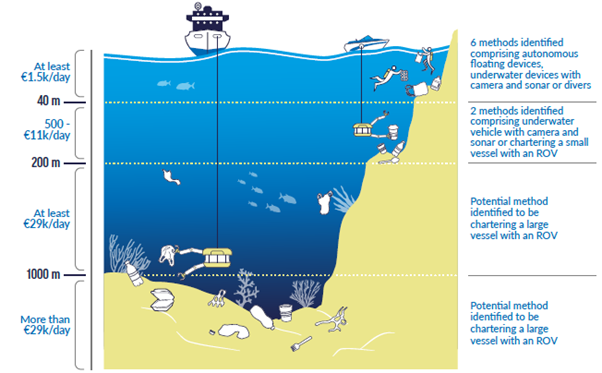New Oceana collaboration: Litter clean-ups will not solve the marine plastics crisis

Our postdoctoral researcher, Dr. Alicia Mateos Cárdenas, recently completed a consultancy for Oceana Europe on the feasibility of seabed litter clean-ups.
The main output of this work was the publication of a factsheet entitled “Litter clean-ups will not solve the marine plastics crisis. The ecological, technical and economic constraints of seabed clean-ups”. Here, Alicia reviewed the state of the art of the techniques available, from divers to ROVs equipped with grippers, and their costs.
The main take home messages from this work are:
- Seafloor clean-ups are particularly expensive. The costs and difficulties increase with depth, and so it does the accumulation of litter.
- The deep sea is a hotspot for plastics. However, current technologies are not ready to be implemented at high depths. Some prototypes are being developed, however their release date or capabilities to work under certain environments (complicated terrains, depths higher than 100 m, high turbidity) is not clear.
- Policy recommendations and funding should always prioritise upstream solutions to plastic pollution. Litter clean-ups should not be seen as the go-to solution to this environmental problem, but as a side tool to clean all litter that has already accumulated on the seafloor.
Marine Geosciences Research Group
University College Cork
Contact us
School of Biological, Earth and Environmental Sciences, North Mall Campus, University College Cork, North Mall, Cork City, T23 TK30
